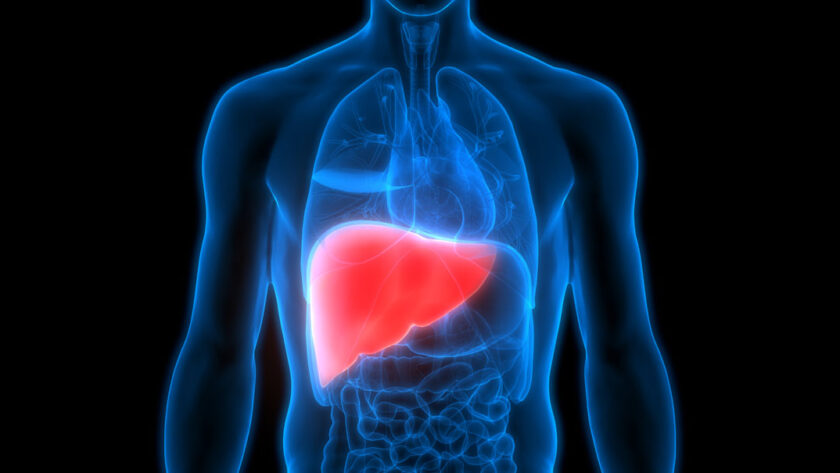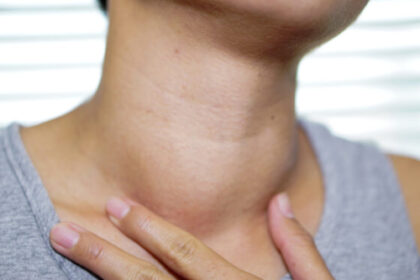Nestled beneath the ribcage, the liver is an organ that wears many hats—Over 500 biological functions to be exact, but today we’ll focus on 50 to be precise and give you a deep understanding of why health of the liver is so important. Often referred to as the body’s metabolic maestro, the liver orchestrates an impressive array of functions that are vital for our well-being. From detoxification and digestion to regulation and storage, the liver’s role in maintaining the body’s equilibrium is nothing short of remarkable. In this article, we’ll delve into the 50 essential functions of the liver, highlighting its multifaceted importance in keeping our bodies healthy and functional.
We’ll explore 50 of the key most important biological functions of the liver to give you an idea of the vast range that this one organ has. You’ll recognize that many of these functions have to do with digestion, metabolism, absorption of nutrients and detoxification of agents that you do not want in your body.
In other words, the liver has a very important role of being an internal filter for your body, similar to your kidneys and lymphatic system as well. This is important for keeping the nutrients you eat and drink and disposing of the rest. It also plays a role in hormonal regulation as well.
Without further ado, here are 50 biological functions of the liver:
- Metabolism Control: The liver regulates metabolism by managing energy production and storage through nutrient conversion.
- Detoxification Hub: It detoxifies harmful substances, such as drugs, alcohol, and metabolic waste, to prevent their adverse effects.
- Bile Production and Secretion: The liver produces bile, essential for breaking down fats during digestion and aiding nutrient absorption.
- Glycogen Storage: It stores glucose as glycogen, releasing it to maintain blood sugar levels when needed.
- Glucose Regulation: The liver maintains stable blood sugar levels by storing and releasing glucose as required.
- Cholesterol Homeostasis: It plays a pivotal role in controlling cholesterol levels, critical for cardiovascular health.
- Protein Synthesis: The liver produces proteins like albumin, essential for maintaining fluid balance and transporting molecules.
- Blood Coagulation: It synthesizes clotting factors, ensuring blood clots form effectively to prevent excessive bleeding.
- Ammonia Conversion: The liver detoxifies ammonia, a byproduct of metabolism, by converting it into urea for safe excretion.
- Hormone Metabolism: It processes hormones, influencing hormonal balance and response throughout the body.
- Iron Storage and Release: The liver stores excess iron, releasing it for the production of red blood cells.
- Vitamin Storage: It stores fat-soluble vitamins (A, D, E, and K) for use during times of dietary deficiency.
- Blood Filtering: The liver filters blood, removing bacteria, damaged cells, and other particles to purify the bloodstream.
- Immune Support: Specialized liver cells contribute to immune function by identifying and neutralizing pathogens.
- Albumin Production: The liver produces albumin, a protein essential for maintaining blood pressure and volume.
- Drug Metabolism: It metabolizes medications and drugs, affecting their efficacy and duration in the body.
- Gluconeogenesis: The liver produces glucose from non-carbohydrate sources to sustain blood sugar levels.
- Red Blood Cell Breakdown: It dismantles old or damaged red blood cells, recycling their components for reuse.
- Synthesis of Enzymes: The liver manufactures enzymes that facilitate digestion and other biochemical reactions.
- Production of Lipoproteins: It creates lipoproteins that transport fats and cholesterol throughout the body.
- Uptake of Nutrients: The liver absorbs nutrients from the bloodstream to support its numerous functions.
- Synthesis of Clotting Proteins: The liver produces proteins needed for blood clotting after injuries.
- Growth Factor Activation: It activates growth factors essential for tissue repair and regeneration.
- Hemoglobin Recycling: The liver breaks down hemoglobin from old blood cells, recycling its components.
- Synthesis of Urea: Ammonia detoxification culminates in the liver’s creation of urea for excretion.
- Detoxification of Bilirubin: The liver processes bilirubin, a product of hemoglobin breakdown, and excretes it through bile.
- Storage of Fat-Soluble Toxins: It stores fat-soluble toxins, minimizing their immediate impact on the body.
- Conversion of Thyroid Hormones: The liver converts inactive thyroid hormones into their active forms.
- Synthesis of Complement Proteins: It produces complement proteins that enhance immune responses.
- Gluconeogenesis Regulation: The liver modulates gluconeogenesis based on the body’s energy needs.
- Acid-Base Balance: It contributes to maintaining the body’s acid-base balance for optimal functioning.
- Excretion of Bilirubin: The liver excretes bilirubin into bile, eventually eliminating it from the body.
- Gallbladder Function: The liver’s bile is stored in the gallbladder, ready to aid digestion upon release.
- Storage of Glycogen: It stores glycogen for energy reserves, crucial during periods of increased demand.
- Synthesis of Plasma Proteins: The liver produces plasma proteins essential for maintaining osmotic balance.
- Amino Acid Metabolism: It processes amino acids, contributing to protein synthesis and energy production.
- Uptake of Fatty Acids: The liver absorbs and metabolizes fatty acids to support various functions.
- Synthesis of Lipids: It manufactures lipids used for energy storage and cell membrane structure.
- Maintenance of Acid-Base Balance: The liver plays a role in maintaining the body’s pH balance.
- Synthesis of Hormones: It synthesizes hormones that regulate various physiological processes.
- Production of Fibrinogen: The liver produces fibrinogen, a protein crucial for blood clotting.
- Immunoglobulin Formation: It participates in the formation of immunoglobulins, vital components of the immune system.
- Synthesis of Antithrombin: The liver produces antithrombin, which helps regulate blood clotting.
- Storage of Vitamins: It stores water-soluble vitamins (B-complex and vitamin C) for later use.
- Breakdown of Medications: The liver metabolizes medications, determining their effectiveness and impact.
- Synthesis of Hormone-Binding Proteins: It produces proteins that bind to hormones, influencing their transport and availability.
- Cholesterol Excretion: The liver excretes cholesterol into bile, aiding its elimination from the body.
- Conversion of Galactose: It converts galactose, a sugar, into glucose for energy production.
- Synthesis of Fatty Acid-Binding Proteins: The liver produces proteins that facilitate the transport of fatty acids.
- Regulation of Lipid Metabolism: It influences lipid metabolism, impacting fat storage and utilization.
The liver’s staggering 50 functions highlight its integral role in maintaining our bodies’ equilibrium. From detoxification and digestion to regulation and storage, this organ is an unsung hero working tirelessly to keep us healthy. Understanding the diverse functions of the liver underscores its critical importance in sustaining life and well-being. Truly, the liver’s multitasking abilities are a testament to the wonders of the human body’s intricate design.
How To Optimize Liver Health:
Maintaining a healthy liver is crucial for overall well-being, and incorporating certain foods into your diet can provide significant support for this vital organ. Among these liver-loving foods, beets take a prominent spot. Rich in antioxidants and compounds like betaine, beets aid in detoxifying the liver, assisting it in processing and eliminating harmful substances. Furthermore, the fiber content in beets promotes healthy digestion, reducing the burden on the liver. Adding a splash of color and tanginess to the mix, citrus fruits like lemons, limes, and oranges are brimming with vitamin C, a powerful antioxidant that helps neutralize free radicals and reduce inflammation. Moreover, the natural citric acid in these fruits encourages the production of bile, aiding in digestion and supporting liver health.
Radiate 21 Includes More Liver Supportive Ingredients Than Any Formula Making Your Gut & Lymphatic System Much Healthier. Click Here To Learn More.
In addition to beets and citrus fruits, incorporating leafy greens into your diet can be a boon for your liver. Greens like spinach, kale, and arugula are packed with nutrients, including chlorophyll, which helps detoxify the liver by assisting in the elimination of toxins. These greens also contain fiber and a wealth of vitamins and minerals that promote overall health. Turmeric, a vibrant spice, is another superstar when it comes to liver health. Its active compound, curcumin, possesses potent anti-inflammatory and antioxidant properties that have been shown to protect liver cells from damage. By embracing a diet rich in these liver-loving foods, you can take proactive steps to support your liver’s health and ensure its proper functioning in the complex symphony of your body’s processes.
5 Superfoods For Liver Health:
Ashwagandha:
Supports healthy Liver Enzyme Levels: Some studies have suggested that ashwagandha might help normalize liver enzyme levels, which can be indicative of liver function.
Neem:
Neem is a popular herb in Ayurvedic medicine. One study investigated the potential hepatoprotective effects of neem leaf extract on rats with liver damage induced by paracetamol (acetaminophen). The results suggested that neem extract had protective effects on liver function, reducing elevated liver enzymes and lipid peroxidation levels. The researchers concluded that neem extract could potentially help mitigate liver damage caused by paracetamol toxicity.
Lemon, Lime, Orange:
Lemon, lime, and orange are among the top choices for promoting liver health due to their impressive nutritional profiles and unique properties. These citrus fruits are rich sources of vitamin C, a potent antioxidant that helps neutralize harmful free radicals and supports the body’s detoxification processes. Additionally, their natural citric acid content stimulates the production of bile, aiding digestion and promoting the breakdown of fats. The combination of vitamin C and other beneficial compounds in lemon, lime, and orange contributes to reducing inflammation, supporting immune function, and maintaining overall liver vitality. Incorporating these citrus fruits into your diet can be a flavorful and refreshing way to provide your liver with essential nutrients and support its vital functions.
Improve Liver Health Plus More in One Simple Formula:
Radiate 21 is a holistic wellness supplement that encompasses a range of natural ingredients to comprehensively support overall health, with a special focus on liver health. By blending the power of neem and ashwagandha, Radiate 21 provides a unique synergy that offers potential hepatoprotective benefits. Neem’s antioxidant properties and ashwagandha’s adaptogenic effects contribute to a balanced and resilient liver. The inclusion of lime, lemon, and orange further enriches this formulation with vitamin C and citric acid, promoting detoxification through enhanced bile production and assisting in combating oxidative stress.
Beyond liver health, Radiate 21 takes a holistic approach by addressing other vital aspects of well-being. The presence of neem and ashwagandha supports gut health by potentially reducing inflammation and promoting a balanced gut microbiome. This supplement also recognizes the importance of lymphatic health, potentially aiding in the detoxification process by promoting lymphatic circulation. Additionally, Radiate 21 extends its benefits to EMF protection, acknowledging the modern challenges posed by electromagnetic frequencies.
Incorporating Radiate 21 into a wellness routine offers a multi-faceted approach to health, encompassing liver support, gut well-being, lymphatic circulation, and EMF protection. As with any supplement, consulting a healthcare professional before use is recommended to ensure it aligns with individual health needs and goals. Visit Radiate21.com to learn more by clicking here.






